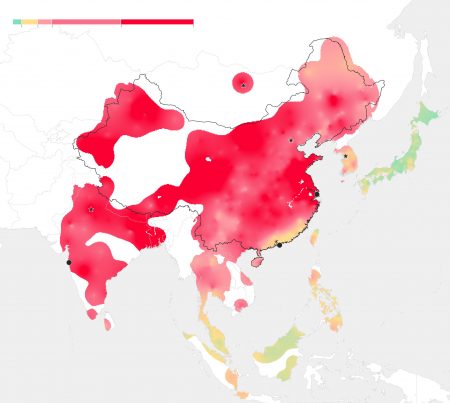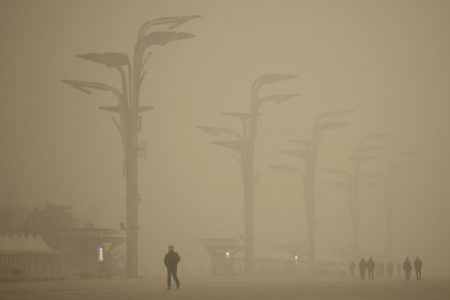March 10, 2018 – In an article appearing on the Bloomberg website yesterday, Jeff Kearns, Hannah Dormido, and Alyssa McDonald described how the Chinese government is going green at breakneck speed. It seems only fair since the previous four decades in China’s history turned the nation into the world’s largest polluter. In 2015 Berkeley Earth, an independent research group estimated that air pollution in China contributed to 1.6 million deaths annually.
As I have studied China’s progress on the pollution issue, it has been apparent that the Chinese people are becoming more critical of their government’s inability to keep the air clean enough to not taste it. It may sound like I’m exaggerating, but on bad days in places like Shanghai and Beijing, the amount of pollutants from coal-fired power plants, home heating, cooking, and transportation create air that contains fine particulate matter greater than 2.5 microns in size. When you sample the air with your tongue you can taste the sulfur dioxide, nitrogen oxide, and suspended carbon. Over much of eastern China, from Mongolia to the Yangtze River basin, and to points south as far as Shenzhen and Hong Kong, the air is making Chinese people sick.

China’s war on air pollution includes the single largest internal carbon market on the planet, and a significant push to get the Chinese people into electric vehicles. China is also the largest installer of solar panels. The country is also investing in hydrogen as a clean fuel and energy source. And in an interesting development, reducing its industrial capacity and the demand for coal, steel, aluminum, and paper in an effort to reduce carbon emissions. The turnaround is taking hold with improvements to air quality in Beijing (emissions are a third lower than in 2015). In other air polluted cities, the reduction in emissions is about 10% over the same period.
Has this slowed China’s economic growth? So far, not so much as the pivot to renewable energy production and electric cars picks up the slack from a decline in traditional heavier industries.









